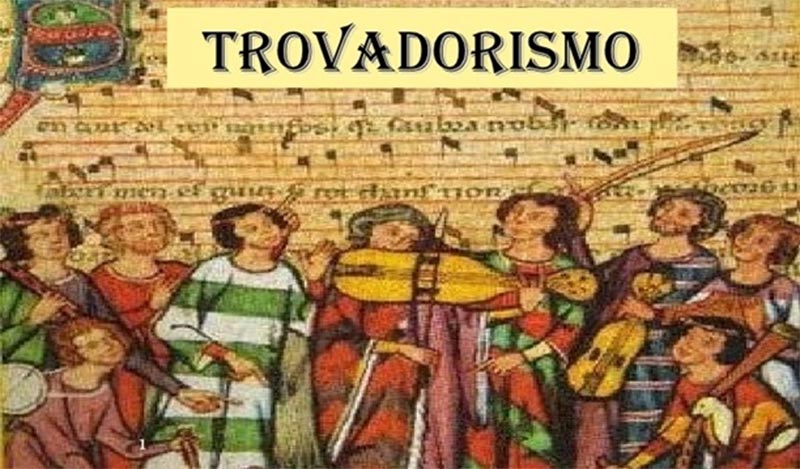ADVERTS
Troubadourism, what it is, what origin and examples of Troubadourism
For those who don't know, troubadourism was a literary movement and if you want to know more about what troubadourism is, stay with us and find out everything about this type of movement that emerged in the middle ages, back in the 11th century in the regions of Portugal.
What is Troubadourism?
Troubadourism was a literary and poetic movement that emerged in the Middle Ages, it was and is considered the first literary movement in the Portuguese language, as it was from there that the first manifestations emerged.
ADVERTS

The songs are the main records of the troubadour movement of the time, these songs are divided into songs of friends, songs of love, mockery and curses. The peak duration of this Troubadour movement was around 150 years, ranging from the end of the 12th century to the middle of the 14th century.
What is the origin of Troubadourism?
There are some theses that are admitted to explain the real origin of Troubadourism, there are a total of 4 theses that explain the entire history of this movement, the Arabic thesis, which considers Arabic culture as its old root; the folkloric thesis, which considers it created by the people themselves; the Middle-Latinist thesis, according to which this poetry had its origins in Latin literature produced during the Middle Ages; and, finally, the liturgical thesis, which considers it to be the result of liturgical-Christian poetry created at the same time.
The oldest Galician-Portuguese literary manifestation that can be dated is the song “Ora faz host'o Senhor de Navarra”, by the Portuguese troubadour João Soares de Paiva or João Soares de Pávia, probably composed around the year 1200. For this song being the oldest datable, it is appropriate to date the beginning of the medieval Galician-Portuguese Lyric from there.
Classifications of songs in Troubadourism
ADVERTS
Four types of songs were identified through ancient writings at the beginning of the 11th century.
Songs of friends
This type of song, which did not appear in Provence like the others, had its origins in the Iberian Peninsula. In it, the lyrical self is a woman who sings her love for her friend, often in a natural environment, and often also in dialogue with her mother or friends.
Love songs
In this type of song, originating from Provence, in the south of France, the lyrical self is masculine and suffering. His beloved is called sir, he sings of the qualities of his love, “my sir”, whom he treats as superior, revealing his hierarchical status. He sings about the pain of loving and is always affected by “coita”, a common word in love songs that means “suffering for love”.
Song of mockery
In the mocking song, the lyrical self satires some person. This satire was indirect, full of double meanings. Songs of mockery are therefore defined as those made by troubadours to say bad things about someone, through ambiguities, puns and semantic games, in a process that the troubadours called “equivocal”. The comedy that characterizes these songs is predominantly verbal, therefore dependent on the use of rhetorical resources.
Cursing song
Unlike the song of mockery, the song of curse brings direct satire without double meanings. Verbal aggression towards the person being satirized is common, and often even profanity is used. The name of the person being satirized may or may not be revealed.
